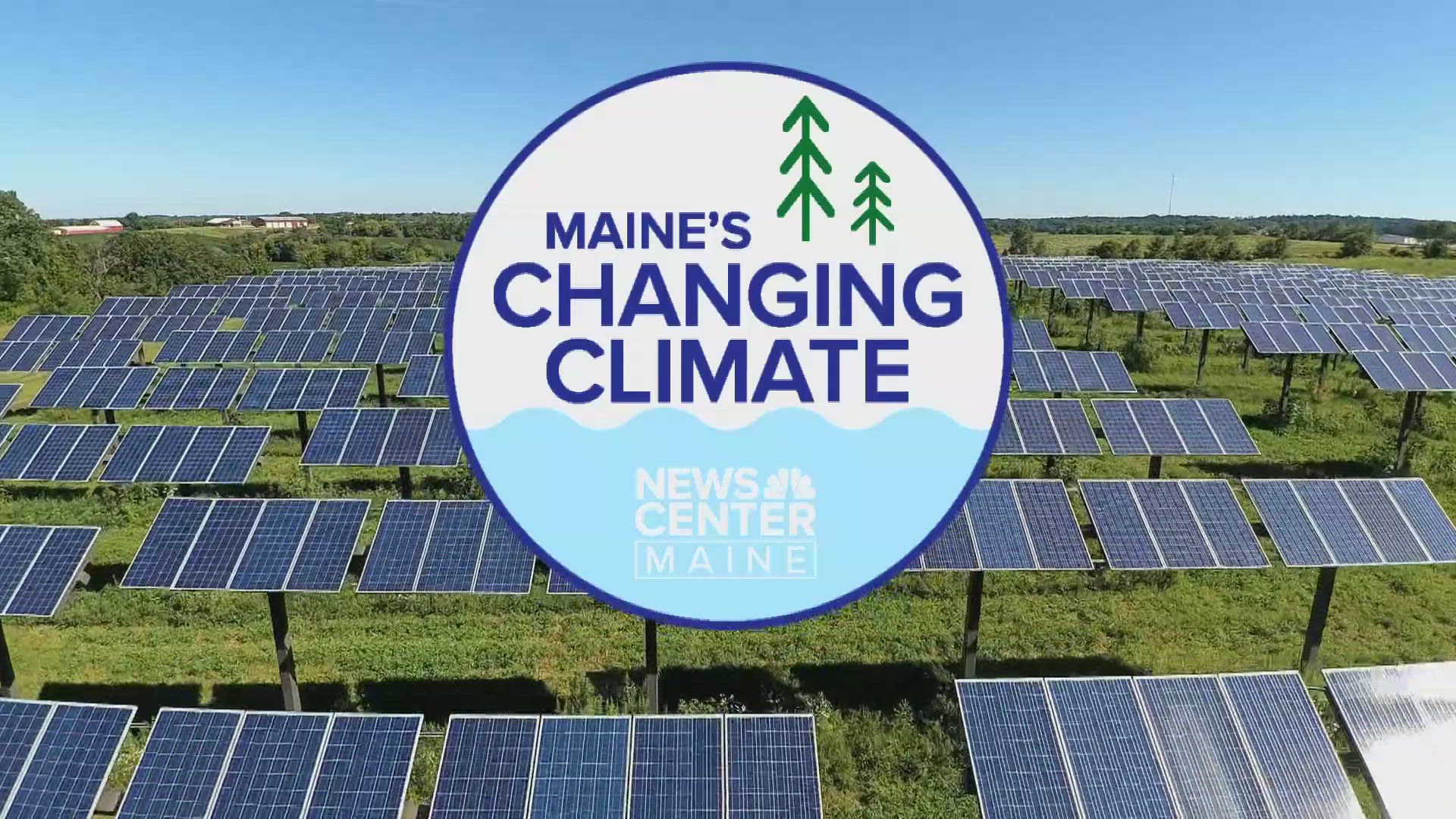ELLSWORTH, Maine — For the past five years, community solar projects have been popping up across Maine.
Two projects in Ellsworth are expected to feed electricity into the grid by year’s end, but local environmentalists are not convinced these projects are the best route to a greener community.
Off Nicolin Road, 15 acres of solar panels sit angled at the sky. This site is ready to power on but is awaiting approval, according to Dirigo Solar co-founder Bob Cleaves.
He estimates the site displaces “about 1,000 cars emitting carbon dioxide into the air every year.”
Cleaves began his business in 2019, shortly after Gov. Janet Mills announced her plans for Maine’s electricity to be 100 percent renewable by 2040. One component of that goal is community solar.
Community solar projects are private solar farms owned by companies that individual households can subscribe to at no cost. Based on the solar output, subscribers can see up to a 15 percent decrease in their annual electric bill.
Further southeast on Bucksport Road, Mitsubishi-owned Nexamp is building a 20-acre solar farm.
The 35 acres of new solar join Ellsworth’s pre-existing solar infrastructure. City Planner Matt Williams said he sees the renewable expansion as a positive thing.
“It's good for the community overall," Williams said.
The city has been buying solar credits to reduce its own costs. It's a benefit Williams said is then passed down to taxpayers.
Adding more solar is a step in the right direction, according to leaders at Green Ellsworth, a local environmentalist group. But they have concerns.
For Tabatha White, the chair of trees at the organization, her principal concern is the removal of carbon-capturing trees.
“I just feel like we don't have time to make mistakes on this particular issue,” White said. “I think that there is a lot of hesitation around changing our energy sources, and if we go about and they end up ruining land, I just don't think that's worth it.”
Instead of creating solar farms on the ground, White suggests integrating panels into pre-existing infrastructure.
“Tapping into existing parking lots and large department store-like buildings that have already cleared a substantial amount of land,” she said.
Mary Blackstone, Green Ellsworth’s community liaison, is also critical of the projects. Her complaint is less about where the projects are built but instead by who builds them.
“The extent to which that is going to benefit local people that is much less than it should be,” she said.
Blackstone explained she would prefer to see citizen-owned solar instead but acknowledged that approach isn’t incentivized.
“If we want this cooperative model or some kind of community-led solar, we need to initiate some kind of project," she said.
Having left a career in law to start his company, Cleaves said he feels strongly about the issue of renewables and feels solar is only going to grow in Maine over the coming years, opening opportunity for different kinds and scales of solar.
Renewables are already common in Maine.
According to the U.S. Energy Information Administration, in 2022 64 percent of Maine’s electricity was generated by renewables, bringing the state nearer to Mills' total renewable goal.
However, seven of 10 Maine households directly produce carbon emissions by using petroleum products to heat their homes.
To reduce emissions, Cleaves suggests transitioning to heat pumps.
“Anything we can do to use electricity in our daily lives and change that electricity from carbon-based electricity to carbon-free electricity will make a difference.”
Those at Maine's Public Utilities Commission strongly urge those interested in community solar diligently read their contract and reach out to the Maine Office of the Public Advocate if they have questions.

